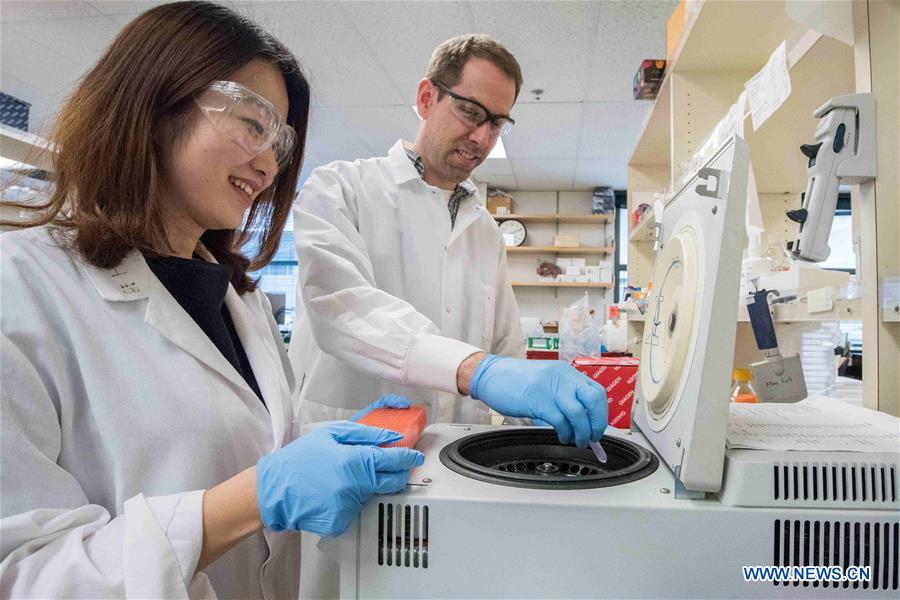
Lawrence Berkeley National Laboratory scientist Antoine Snijders (R) experiment with China's Nanjing Drum Tower Hospital researcher Wang Pin in San Francisco, the United States, on Jan. 11, 2017. New research indicates that exposure to thirdhand smoke leads to biological effects on weight and cell development that could be damaging to human health. (Xinhua/Berkeley Lab)
SAN FRANCISCO, Feb. 3 (Xinhua) -- New research indicates that exposure to thirdhand smoke leads to biological effects on weight and cell development that could be damaging to one's health.
The study, led by researchers at the U.S. Department of Energy's Lawrence Berkeley National Laboratory (Berkeley Lab), provided evidence that newborn mice housed with smoke-treated cloths for three weeks weighed significantly less than mice in a control group.
Reporting their findings Friday in a paper in Scientific Reports, the Berkeley Lab researchers and their colleagues at the University of California, San Francisco, and Nanjing Medical University in China also found that newborn and adult mice exposed to thirdhand smoke led to persistent changes in blood cell counts associated with the immune system for both newborn and adult mice.
The blood cell count changes are associated with inflammatory and allergic reactions upon exposure to thirdhand smoke.
"We suspected that the young are most vulnerable because of their immature immune systems, but we didn't have a lot of hard evidence to show that before," said study lead author Bo Hang, a Berkeley Lab staff scientist who previously found that thirdhand smoke could lead to genetic mutations in human cells. "In this case, we found that thirdhand smoke appeared to inhibit weight gain in neonatal mice, but not in the young adults."
While the effects on weight were only seen in the neonatal mice, changes in blood cell populations were evident in both age groups. In general, there were higher levels of platelets and specific types of white blood cells in the smoke-exposed mice. For example, neonatal mice exposed to thirdhand smoke had higher levels of eosinophils, female adults had higher levels of neutrophils, male adults had higher levels of basophils, and all mice had higher levels of B cells.
"Those are all types of white blood cells associated with inflammation and allergic reactions," said Jian-Hua Mao, the study's corresponding author and another Berkeley Lab scientist. "And the effects on blood cell count persisted even after exposure ended. Changes remained at least 14 weeks after exposure ended for the neonatal group, and two weeks after it ended for the adults."
The weight effect was temporary for mice, as they began catching up with their non-exposed peers in weight weeks after smoke exposure stopped.
Acknowledging that they did not study whether the observed biological changes led to specific diseases or other health outcomes, but that other studies suggest links to adverse health effects, the researchers noted that human babies and toddlers are at greater risk because they come into contact with contaminated surfaces while crawling or teething during a critical window of immune system development.










